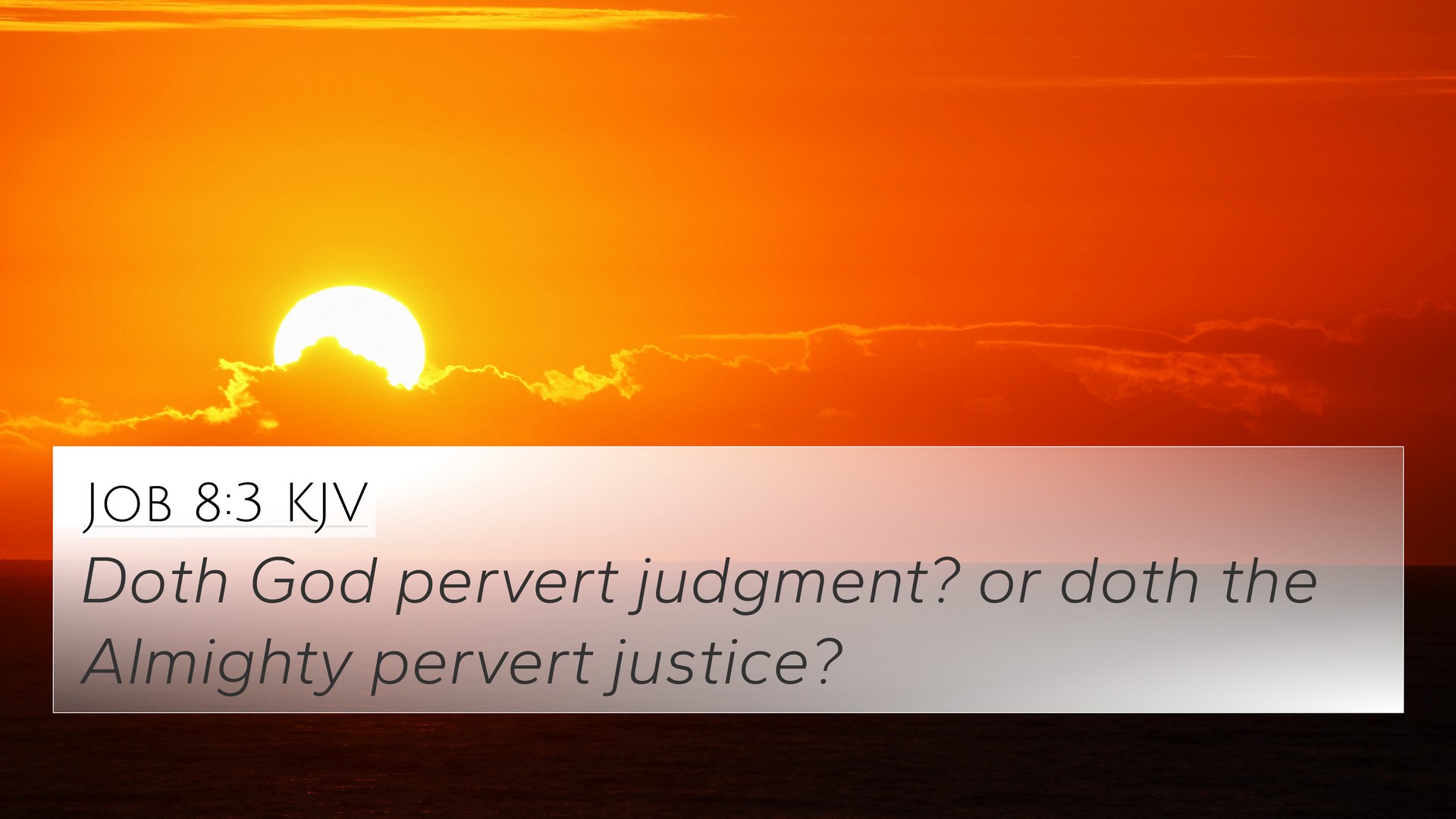Old Testament
Genesis Exodus Leviticus Numbers Deuteronomy Joshua Judges Ruth 1 Samuel 2 Samuel 1 Kings 2 Kings 1 Chronicles 2 Chronicles Ezra Nehemiah Esther Job Psalms Proverbs Ecclesiastes Song of Solomon Isaiah Jeremiah Lamentations Ezekiel Daniel Hosea Joel Amos Obadiah Jonah Micah Nahum Habakkuk Zephaniah Haggai Zechariah MalachiJob 8:3 Similar Verses
Job 8:3 Cross References
Doth God pervert judgment? or doth the Almighty pervert justice?
Uncover the Rich Themes and Topics of This Bible Verse
Listed below are the Bible themes associated with Job 8:3. We invite you to explore each theme to gain deeper insights into the Scriptures.
Job 8:3 Cross Reference Verses
This section features a detailed cross-reference designed to enrich your understanding of the Scriptures. Below, you will find carefully selected verses that echo the themes and teachings related to Job 8:3 KJV. Click on any image to explore detailed analyses of related Bible verses and uncover deeper theological insights.

Deuteronomy 32:4 (KJV) »
He is the Rock, his work is perfect: for all his ways are judgment: a God of truth and without iniquity, just and right is he.

2 Chronicles 19:7 (KJV) »
Wherefore now let the fear of the LORD be upon you; take heed and do it: for there is no iniquity with the LORD our God, nor respect of persons, nor taking of gifts.

Genesis 18:25 (KJV) »
That be far from thee to do after this manner, to slay the righteous with the wicked: and that the righteous should be as the wicked, that be far from thee: Shall not the Judge of all the earth do right?

Daniel 9:14 (KJV) »
Therefore hath the LORD watched upon the evil, and brought it upon us: for the LORD our God is righteous in all his works which he doeth: for we obeyed not his voice.

Romans 3:4 (KJV) »
God forbid: yea, let God be true, but every man a liar; as it is written, That thou mightest be justified in thy sayings, and mightest overcome when thou art judged.
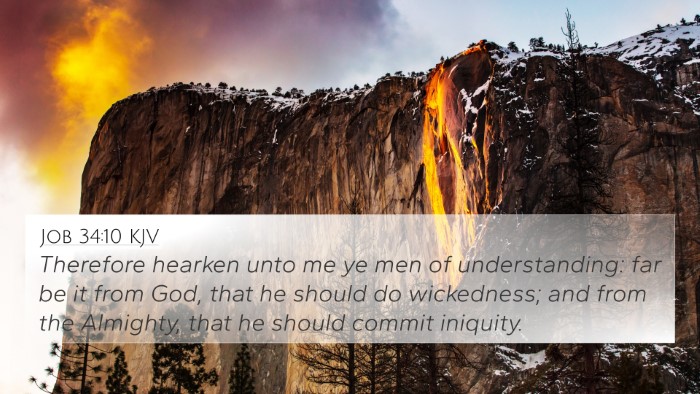
Job 34:10 (KJV) »
Therefore hearken unto me ye men of understanding: far be it from God, that he should do wickedness; and from the Almighty, that he should commit iniquity.
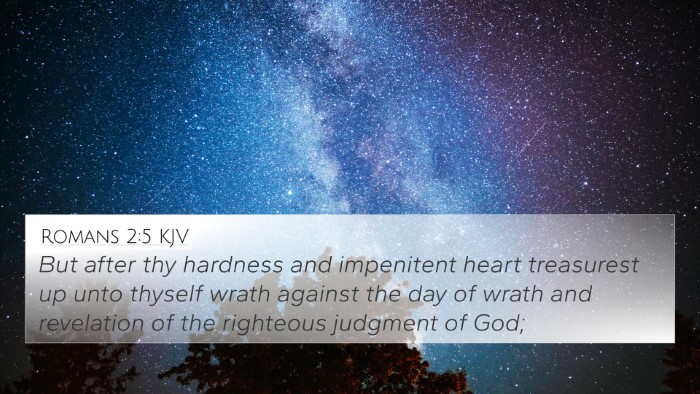
Romans 2:5 (KJV) »
But after thy hardness and impenitent heart treasurest up unto thyself wrath against the day of wrath and revelation of the righteous judgment of God;
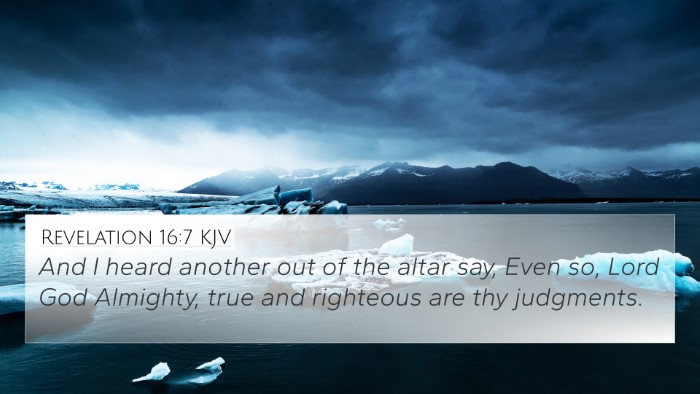
Revelation 16:7 (KJV) »
And I heard another out of the altar say, Even so, Lord God Almighty, true and righteous are thy judgments.

Ezekiel 33:20 (KJV) »
Yet ye say, The way of the Lord is not equal. O ye house of Israel, I will judge you every one after his ways.
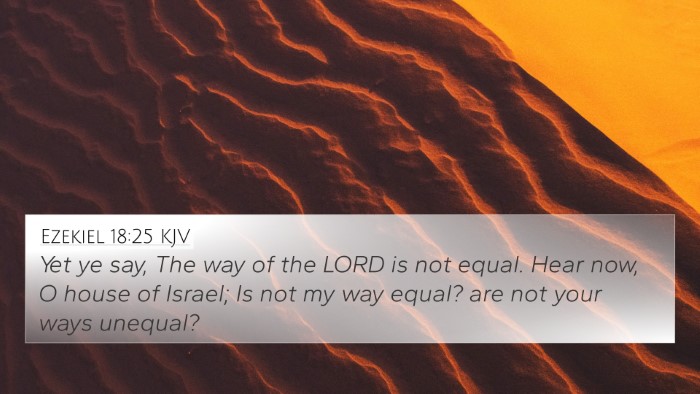
Ezekiel 18:25 (KJV) »
Yet ye say, The way of the LORD is not equal. Hear now, O house of Israel; Is not my way equal? are not your ways unequal?
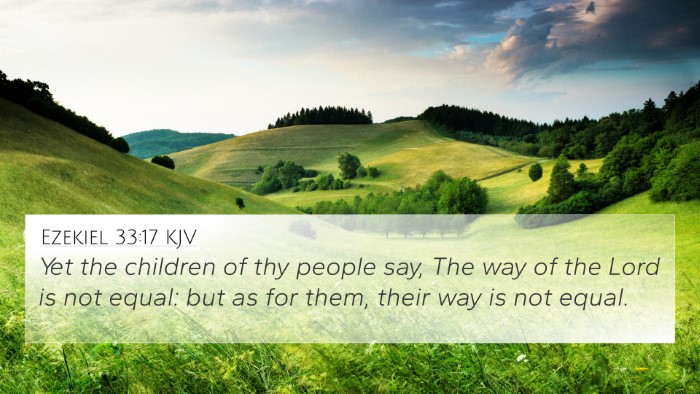
Ezekiel 33:17 (KJV) »
Yet the children of thy people say, The way of the Lord is not equal: but as for them, their way is not equal.
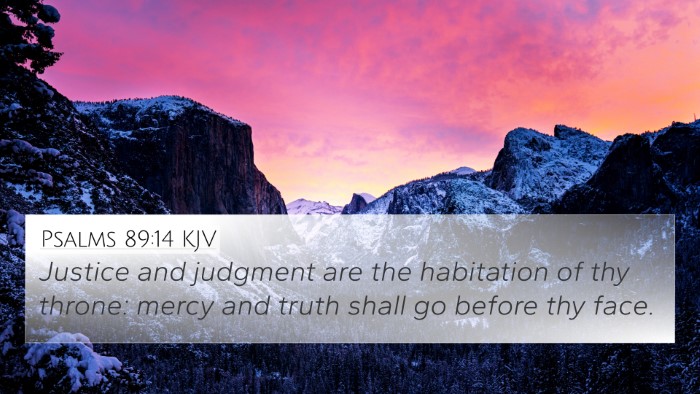
Psalms 89:14 (KJV) »
Justice and judgment are the habitation of thy throne: mercy and truth shall go before thy face.

Psalms 99:4 (KJV) »
The king's strength also loveth judgment; thou dost establish equity, thou executest judgment and righteousness in Jacob.

Job 34:17 (KJV) »
Shall even he that hateth right govern? and wilt thou condemn him that is most just?

Job 21:15 (KJV) »
What is the Almighty, that we should serve him? and what profit should we have, if we pray unto him?

Job 40:2 (KJV) »
Shall he that contendeth with the Almighty instruct him? he that reproveth God, let him answer it.

Job 21:20 (KJV) »
His eyes shall see his destruction, and he shall drink of the wrath of the Almighty.

Job 10:3 (KJV) »
Is it good unto thee that thou shouldest oppress, that thou shouldest despise the work of thine hands, and shine upon the counsel of the wicked?
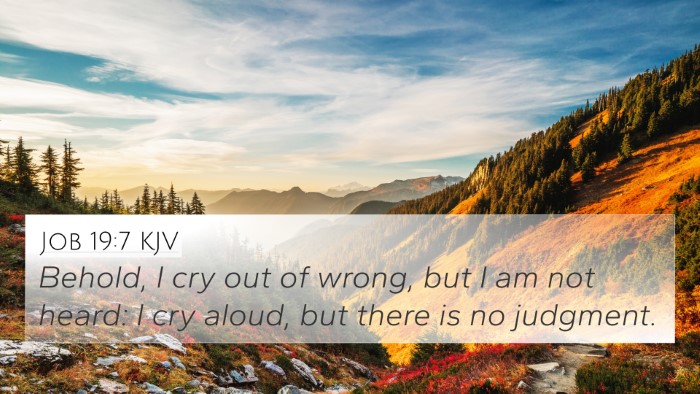
Job 19:7 (KJV) »
Behold, I cry out of wrong, but I am not heard: I cry aloud, but there is no judgment.

Job 40:8 (KJV) »
Wilt thou also disannul my judgment? wilt thou condemn me, that thou mayest be righteous?
Job 8:3 Verse Analysis and Similar Verses
Understanding Job 8:3
Job 8:3 states, "Does God pervert justice? Or does the Almighty pervert the right?" This verse is part of the discourse between Job and his friend Bildad, who attempts to explain Job's suffering by suggesting that it must be a consequence of sin. It raises profound questions about divine justice and the nature of suffering.
Summary of Insights from Public Domain Commentaries
Matthew Henry's Commentary:
Henry remarks that Bildad's assertion is grounded in the belief that God's justice is absolute and unchanging. He interprets this verse as a challenge to question the moral fabric of God. If God were to act unjustly, it would undermine the very foundation of righteousness. Therefore, Job is portrayed as questioning the integrity of divine justice in light of his significant suffering.
Albert Barnes' Notes:
Barnes highlights that Bildad insists on God's inherent justice, suggesting that all suffering arises from human sin. From his perspective, if Job is suffering, he must have committed wrongdoing. Barnes emphasizes that the rhetorical question posed serves to affirm the character of God as just, thus implying that the innocent do not suffer unjustly.
Adam Clarke's Commentary:
Clarke delves into the implications of questioning God's justice. He posits that this verse presents a deep theological reflection, affirming that God does not operate on a principle of injustice. Clarke also notes that the fidelity of God to justice is crucial in understanding human suffering and divine sovereignty.
Key Themes in Job 8:3
- The Nature of Divine Justice: The verse compels readers to reflect on what justice means within the context of suffering and divine governance.
- The Relationship between Human Action and Suffering: It suggests an exploration of karma versus grace in the spiritual experience.
- The Role of Friends in Times of Trials: Bildad's approach shows how friends sometimes provide counsel that lacks empathy.
Cross-References for Job 8:3
Job 8:3 can be linked with several other scriptures that explore the themes of justice, suffering, and righteousness:
- Proverbs 17:15: "He who justifies the wicked and he who condemns the righteous are both alike an abomination to the Lord."
- Psalm 73:1: "Truly God is good to Israel, to those who are pure in heart."
- Lamentations 3:33: "For he does not afflict from his heart or grieve the children of men."
- Isaiah 30:18: "Therefore the Lord waits to be gracious to you, and therefore he exalts himself to show mercy to you."
- Romans 3:5-6: "But if our unrighteousness serves to show the righteousness of God, what shall we say? That God is unrighteous to inflict wrath on us?"
- James 1:13: "Let no one say when he is tempted, 'I am being tempted by God,' for God cannot be tempted with evil, and he himself tempts no one."
- 1 Peter 2:23: "When he was reviled, he did not revile in return; when he suffered, he did not threaten, but continued entrusting himself to him who judges justly."
Applying the Insights
This verse, along with its accompanying cross-references, invites believers to deeper reflections on the nature of suffering and God's justice. Understanding Job 8:3 can broaden one's perspective on how to navigate personal trials and theological questions about the fairness of God's actions.
Comparative Bible Verse Analysis
When examining Job 8:3 in relation to other scriptures, one can observe several connections that enhance comprehension:
- Job 4:7-8: "Consider now: Who, being innocent, has ever perished? Where were the upright ever destroyed?" - This suggests a similar inquiry into justice and innocence.
- 1 Corinthians 10:13: "No temptation has overtaken you that is not common to man. God is faithful, and he will not let you be tempted beyond your ability." - This speaks to God's justice and faithfulness in trials.
Conclusion
Ultimately, Job 8:3 serves as a poignant reminder of the complexity of faith in the face of suffering and challenges believers to seek a deeper understanding of God's character. It is a compelling invitation to question, explore, and appreciate the profound connections found within the biblical text.
Tools for Bible Cross-Referencing
For those looking to delve deeper into cross-referencing biblical texts, several tools and strategies can enhance study efforts:
- Using a Bible Concordance to find related passages.
- Utilizing a Cross-reference Bible Study Guide to connect themes.
- Employing a Cross-reference Bible System for structured study.
